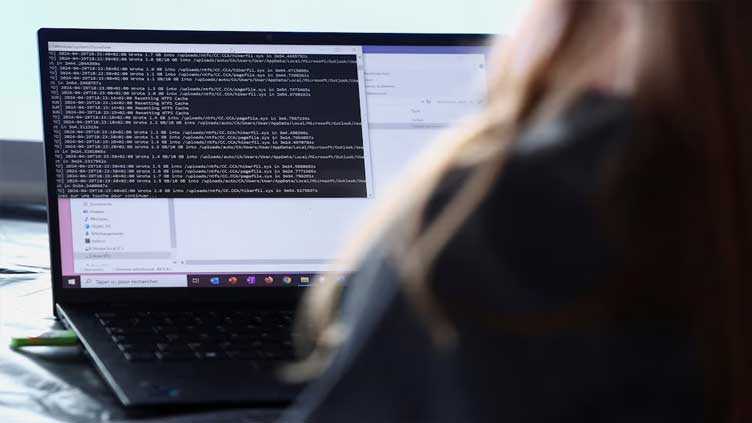French authorities are currently investigating a ransomware attack that has targeted the Grand Palais, one of the prestigious venues slated to host events during the upcoming 2024 Summer Olympics in Paris. The attack has raised concerns about cybersecurity preparedness as the city gears up for the global sporting event.
The Incident
The ransomware attack came to light when administrators of the Grand Palais discovered they were unable to access critical systems. The perpetrators had encrypted essential data and demanded a substantial ransom in exchange for the decryption key. This malicious act has severely disrupted the operations and preparations at the venue, causing significant alarm among the event organizers and stakeholders.
Initial Response
Upon discovering the attack, the administrators immediately reported the incident to the French National Police’s cybercrime unit, the Central Office for Combating Crime related to Information and Communication Technology (OCLCTIC). In addition to law enforcement, cybersecurity experts have been called in to assist in the investigation and to help mitigate the damage caused by the attack.
Potential Impact on the Olympics
The Grand Palais, an iconic cultural and exhibition center in Paris, is set to host several high-profile Olympic events, including fencing and taekwondo. The ransomware attack has cast a shadow over the venue’s readiness to host these events, raising questions about the overall cybersecurity infrastructure in place for the 2024 Olympics. The French government and the International Olympic Committee (IOC) are closely monitoring the situation to ensure that all necessary measures are taken to secure the venues and protect against further cyber threats.
Cybersecurity Measures in Focus
In response to the attack, authorities are ramping up cybersecurity efforts across all Olympic venues. This includes conducting comprehensive security audits, implementing advanced threat detection systems, and enhancing training for staff to recognize and respond to cyber threats. The aim is to ensure a secure environment for athletes, officials, and spectators during the games.
Historical Context of Cyber Attacks on Major Events
Cyber attacks on major events are not unprecedented. The 2018 Winter Olympics in PyeongChang experienced a similar incident where the “Olympic Destroyer” malware disrupted IT systems during the opening ceremony. Such incidents underscore the importance of robust cybersecurity measures for safeguarding critical infrastructure associated with global events.
Government and International Collaboration
The French government is working closely with international partners to tackle the ransomware threat. Collaboration with global cybersecurity organizations and intelligence-sharing with other nations is crucial in addressing the sophisticated nature of cyber threats. By pooling resources and expertise, the aim is to develop a coordinated response to protect against future attacks.
Financial and Operational Ramifications
The financial implications of the ransomware attack on the Grand Palais could be substantial. Ransom demands typically run into the millions, and even if the ransom is not paid, the costs associated with recovery efforts, data restoration, and implementing additional security measures are significant. Operational disruptions also pose a risk, potentially delaying preparations for the Olympic events scheduled at the venue.
Public Reassurance and Transparency
Maintaining public confidence is paramount in the aftermath of such attacks. The authorities have committed to keeping the public informed about the investigation’s progress and the steps being taken to enhance security. Transparency in communication is essential to reassure both the local community and the international audience that all necessary precautions are being implemented to safeguard the Olympics.
The Role of Cyber Insurance
In light of the attack, discussions about the role of cyber insurance have gained prominence. Cyber insurance can provide financial protection and resources to organizations affected by ransomware attacks, covering costs associated with data recovery, legal fees, and business interruption. As cyber threats become more prevalent, having comprehensive cyber insurance is increasingly viewed as a critical component of risk management.
Future Outlook
As the investigation into the ransomware attack on the Grand Palais continues, it serves as a stark reminder of the persistent threat posed by cybercriminals. The incident underscores the need for ongoing vigilance, investment in advanced cybersecurity technologies, and international cooperation to combat cyber threats effectively. Ensuring the safety and security of the 2024 Paris Olympics will require a concerted effort from all stakeholders involved.
Conclusion
The ransomware attack on the Grand Palais Olympic venue is a wake-up call for organizers and authorities to prioritize cybersecurity in the lead-up to the 2024 Summer Olympics. By learning from past incidents and strengthening defenses, the goal is to create a secure environment where the focus can remain on the athletes and the spirit of the games. The response to this attack will set a precedent for how future threats are managed and mitigated, ensuring the integrity and success of the world’s premier sporting event.
